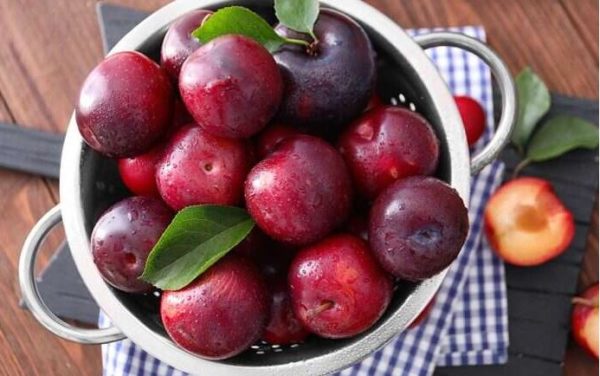Lifestyle
8 wonderful health benefits of Plums fruits

Plums are a very nutritious fruit of the subgenus and genus Prunus and belong to the Rosacea family; the same family that peaches, apricots and nectarines belong to.
Plums, also known as aloobukhara, are prised for their bevy of health benefits. They are over 2000 different varieties of plums that come in diverse sizes and colours that may range from yellow or purple to green or red.
The shape of a plum is round or oval and they are fleshy in the interior with a single hard seed. The taste of the plum varies from sweet to tart and is extremely juicy and delicious when consumed fresh.
Dried plums or prunes are used for making jams and added to other recipes.
Plums are packed full of antioxidants and other vitamins and minerals, that contribute to many of the health benefits of plums.
1. Lower cell damage
Vitamin C and phytonutrients in plums possess powerful antioxidant properties. Antioxidants help prevent cell damage caused by oxidative stress. A study published in the Journal of Medicinal Food found that the antioxidant content in plums can help protect granulocytes (a type of white blood cells) from oxidative stress.
2. Help in digestion
Plums contain a good amount of fibre that can help regulate the digestive system. A 2016 study published in the Molecular Nutrition and Food Research showed that plums contain polyphenols and carotenoids that help lower gastrointestinal inflammation and stimulate digestion.
3. Promote heart health
The fibre, flavonoids and phenolic compounds present in plums can improve heart health by lowering cholesterol and reducing the risk of heart disease.
4. Boosts immunity
The vitamin C content in plums can help in strengthening the immune system by increasing your body’s resistance to infections and inflammation. Numerous studies have shown the link between vitamin C and immune function.
5. Reduces diabetes risk
Plums have a low glycemic index and consuming it will not cause a sudden rise in blood sugar levels. A 2005 study showed the anti-hyperglycemic effects of plums on reducing blood sugar and triglyceride levels. Another study found that eating specific whole fruits, including plums is linked to a lower risk of type 2 diabetes.
6. Supports bone health
The presence of essential minerals like calcium, magnesium, vitamin K and copper in plums can help in improving bone health. A study showed that dried plums can help strengthen bones and improve bone mineral density.
7. Enhances cognitive function
Noted studies have shown the positive effect of plums on cognitive function. Plums are rich in polyphenols that can help prevent age-related neurodegenerative disorders like Alzheimer’s disease.
8. Improves skin health
Plums are rich in vitamin C and other antioxidants which contribute to a healthy, radiant and youthful skin. Vitamin C delays skin wrinkles and reduces dryness of the skin, thus improving the appearance of skin.
Side effects of plums
Plums can cause digestive issues, including bloating, diarrhoea in individuals with irritable bowel syndrome (IBS). Also, plums contain a considerable amount of oxalates, which may increase the risk of kidney stone formation. So, eat plums in moderation.
Ways to include plums in your diet










